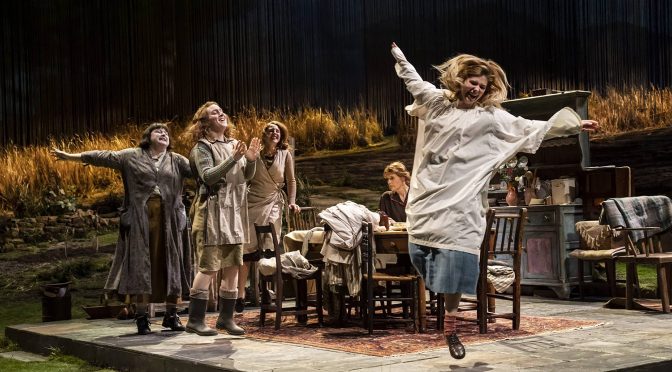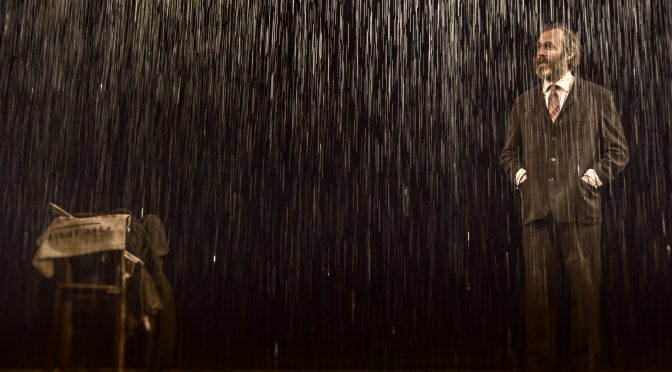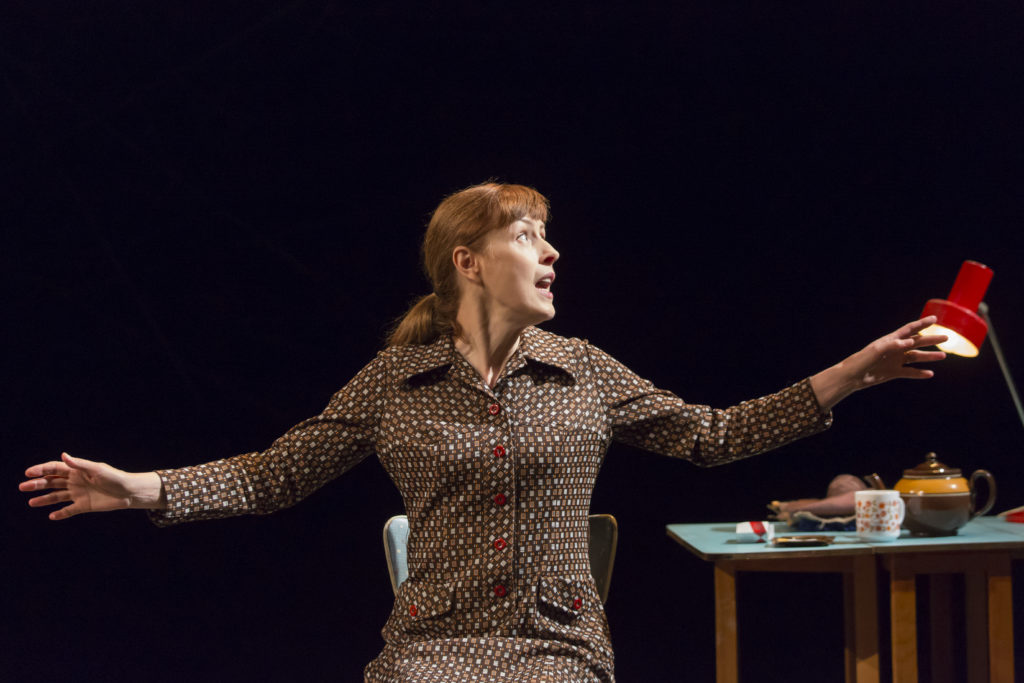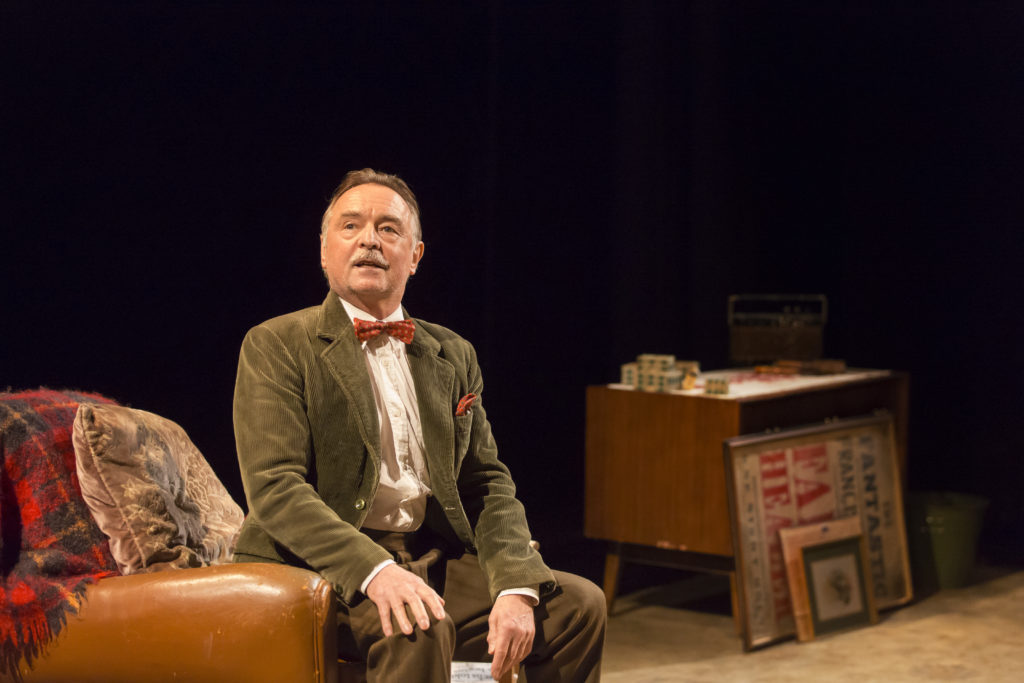Framed around the childhood of a narrator we take to be the playwright, Brian Friel’s award-winning 1990 play is a powerfully subtle piece about memory. We see the frustrated lives of an unmarried mother and her four spinster sisters in 1930s rural Ireland. Beneath mundane details are suggestions of what these women really felt and glimpses of what they wished for.
Running parallel to events, ruminations on recollection itself are exquisitely delivered by Tom Vauhgan-Lawlor, who plays this all-important narrator. It’s clear that this vision of the past is about emotion rather than action. We shouldn’t trust what we see (although note how tempting it is to do so), not because we are being misled but since so much is unknown. The tone is melancholic, despite many moments of affection and joy.
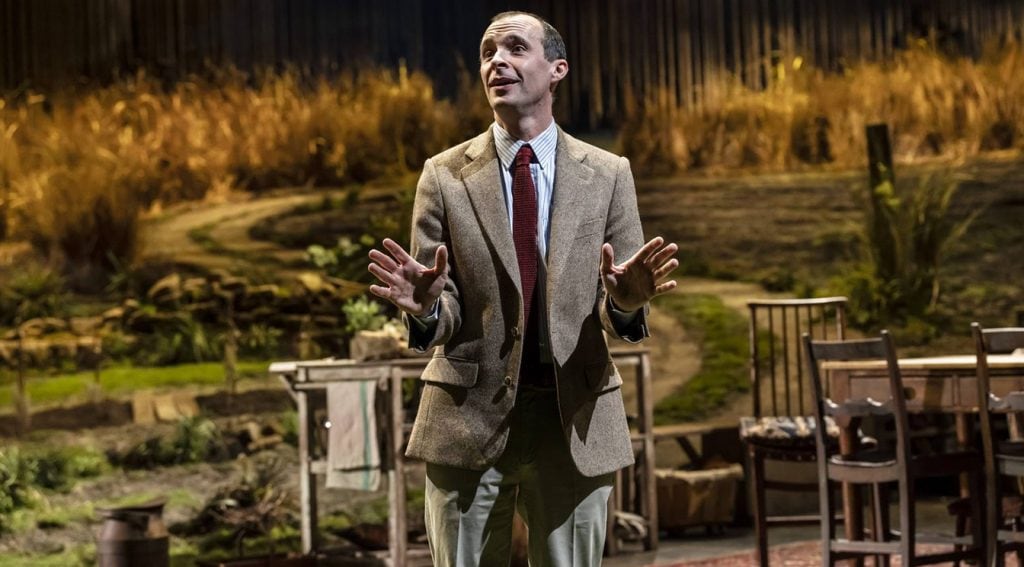
The pace set by director Josie Rourke is appropriately calm. During almost three hours little happens (and ‘big’ events are always off stage). It is the characters who are enthralling with every detail worthy of attention. What we get are snatches remembered from youth – riddles, toys and jokes or arguments that impress themselves on a child – small moments, but vivid.
There are larger themes in Dancing at Lughnasa – big changes in Irish politics and society, with the theme of emigration regularly infringing on life – and Rourke carefully follows Friel’s lead to handle these, mostly, lightly. An exception is Father Jack, a brother who has returned from missionary work having ‘gone native’. The link to the play’s wider pagan themes is stated rather than explored, an unusual misstep, which leaves Ardal O’Hanlon somewhat wasted in the role.
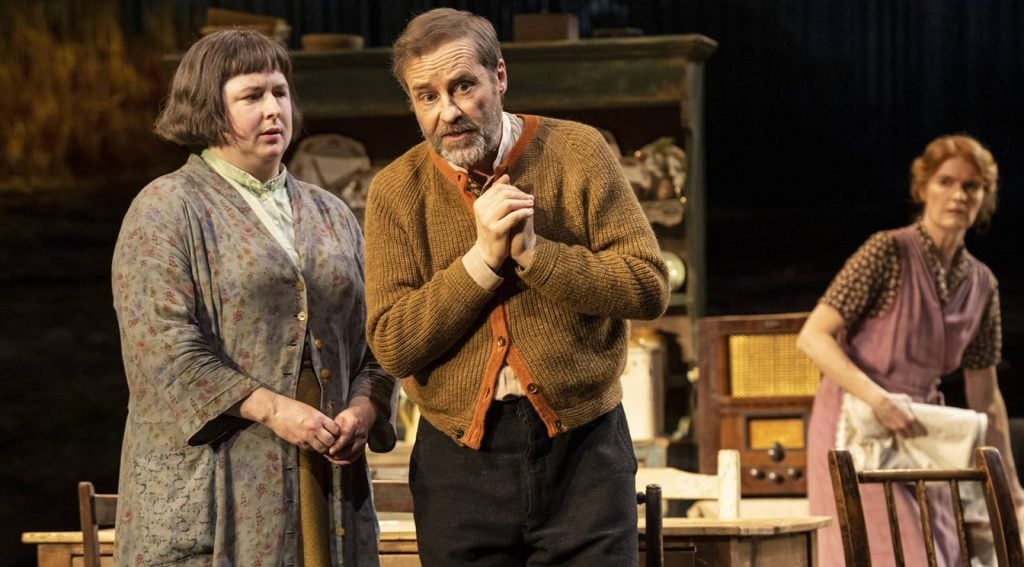
The detail in the writing is captured in a set of strong performances with each actor having to portray frustrations felt as well as a sense of opportunities lost. Our narrator’s mother, played by Alison Oliver, is appropriately to the fore. Her siblings – Justine Mitchell, Louisa Harland, and Bláithín Mac Gabhann – are excellent. These are restrained women, with the weight of the world on their shoulders, which makes any escapism potent. Feel free to pick your favourite although it is hard not to highlight Siobhán McSweeney’s comedy skills as the fifth sister. Her character is described as “light-hearted”, but it is the moments when her smile slips that are most powerful.
There is much unsaid in Dancing at Lughnasa, with plenty of the communication being non-verbal. It turns out that the summer of 1936 was the last time that the family were all together (typically, we don’t see this dramatic split). Is it the time or the memory that comes to be described as “alluring and mesmeric”? Either way, those are responses that the audience comes to share with the narrator. As with time lost and memories themselves, the play lingers in the mind.
Until 27 May 2023
Photos by Johan Persson

